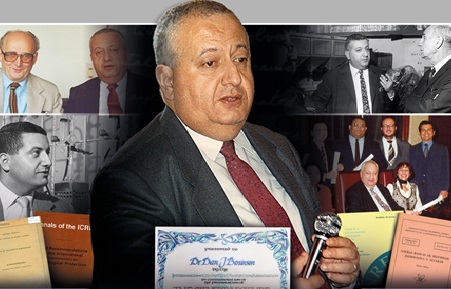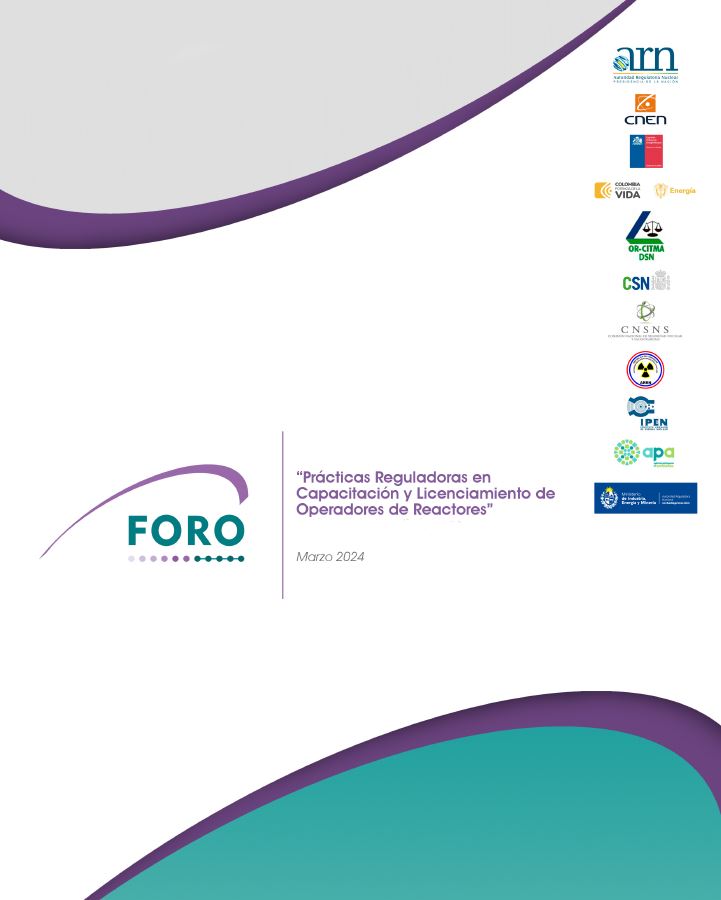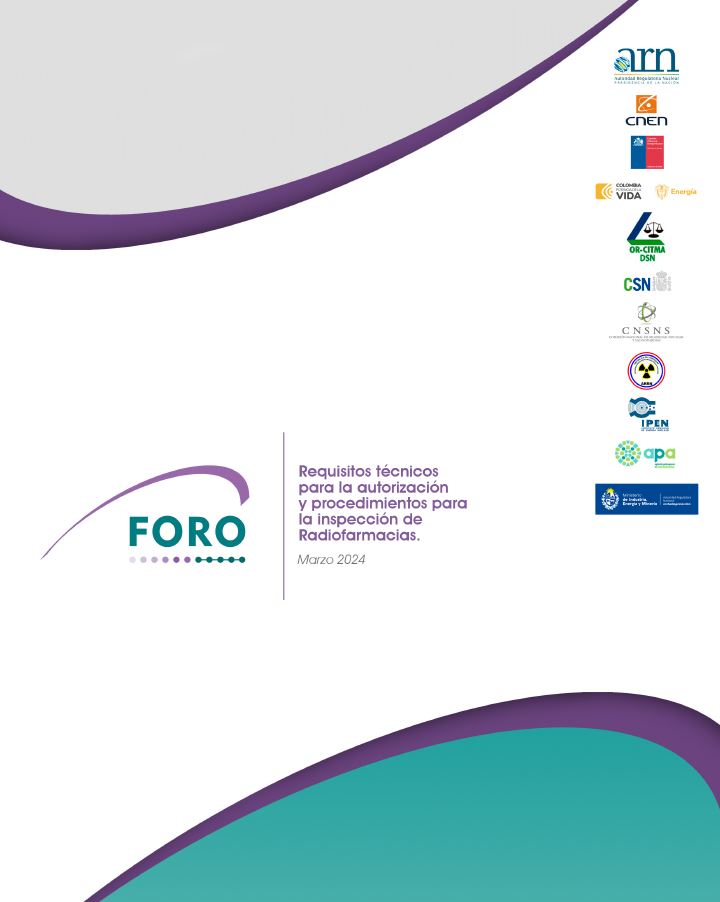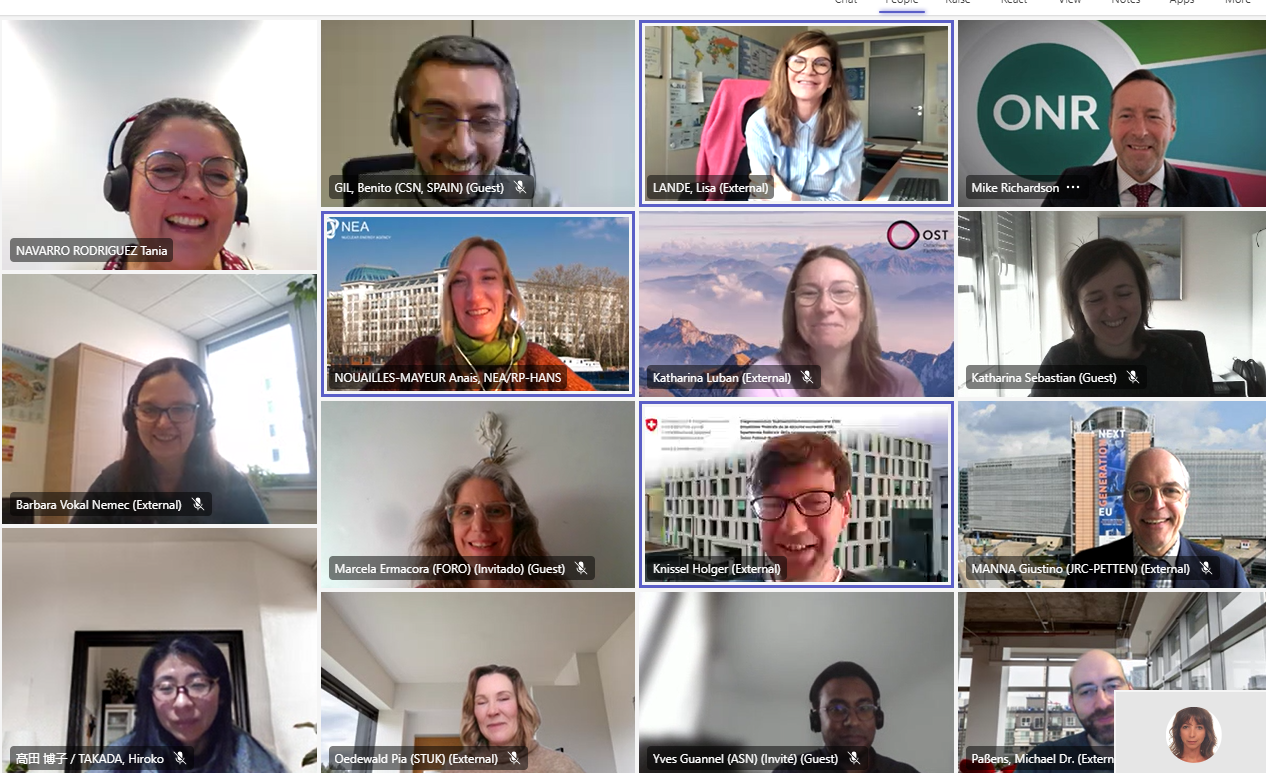Statute
Chapter I. Institution of FORO
Article 1.
The IBEROAMERICAN FORO OF RADIOLOGICAL AND NUCLEAR REGULATORY BODIES, hereinafter "FORO", was created by the Veracruz Agreement, dated July 9, 1997. The members of the FORO are the Regulatory Authorities of Argentina, Brazil, Chile, Colombia, Cuba, Spain, Mexico, Paraguay, Peru and Uruguay.
Article 2.
The FORO can gradually incorporate more regulatory authorities from the countries of the Ibero-American Region, which regulate and control the practices and activities that involve sources of ionizing radiation and nuclear materials.
Article 3.
The FORO will not carry out activities to promote the nuclear programs of the member countries or those related to aspects that are the exclusive competence of the responsible authorities of each country.
Chapter II. Objectives
Article 4.
The FORO's objective is to promote a high level of security in all practices and activities that involve sources of ionizing radiation and nuclear materials in the member countries and by extension in the countries of the Ibero-American Region, for which it will promote the exchange of information and experiences in matters of nuclear, radiological and physical safety, as well as legal and organizational issues of mutual and priority interest, among the Ibero-American regulatory authorities.
Chapter III. Admission conditions
Article 5.
The authorities responsible for the regulation and control of nuclear, radiological and physical safety of the countries that meet the following requirements may be members of the FORO:
- a) Be a Member State of the International Atomic Energy Agency.
- b) Belong to the Ibero-American Region.
- c) Have a regulatory infrastructure in matters pertaining to the FORO.
Article 6.
The requesting State must present a request for admission to the FORO indicating the regulatory authority that represents it. Only one representation per country will be admitted.
Chapter IV. Structure
Article 7.
The FORO is directed by a governing body called the Plenary, made up of those who have the highest representation in the regulatory authorities that comprise it. The structure of the FORO, in addition, is made up of the Executive Technical Committee and the Secretariat.
Chapter V. Plenary
Article 8.
The functions and attributions of the Plenary are:
- a) Define the policies of the FORO.
- b) Approve the FORO Statute and its amendments.
- c) Approve the incorporation of new members.
- d) Issue directives for the administration of financial resources.
- e) Approve the Annual Budget.
- f) Approve requests for extraordinary expenses.
- g) Approve the appointment of the Chairman of the Executive Technical Committee.
- h) Designate the head of the FORO Secretariat.
- i) Approve the technical program.
- j) Authorize the publication of the results of the FORO's technical work.
Chapter VI. Plenary Meetings
Article 9.
The ordinary meetings of the Plenary will take place once a year. Extraordinary meetings may be held to address specific issues. The meetings will be validly constituted with the presence of at least three quarters of the members. Decisions will be adopted in a triple round, the first two being by consensus. If consensus is not reached, in the third round a qualified majority of three quarters of the members present will be applied. Decisions will be recorded in Minutes.
Chapter VII. Chairman of the Plenary
Article 10.
The President of the Plenary will represent the FORO and will have a mandate of one (1) year, on a rotating basis, following the alphabetical order of the countries, in Spanish. In cases of impossibility of assuming the mandate, the presidency will be exercised by the member of the Plenary who succeeds him in alphabetical order.
Article 11.
The functions and attributions of the President of the Plenary are the representation of the FORO in any institutional setting and the calling and organization of the Plenary meetings.
Chapter VIII. Executive technical committee
Article 12.
The Executive Technical Committee (CTE) will be formed by a maximum of eleven members, nine of which will be permanent and two non-permanent. The permanent representation corresponds to the radiological and nuclear regulatory authorities of Argentina, Brazil, Chile, Colombia, Cuba, Spain, Mexico, Peru and Uruguay. Non-permanent representation will rotate every two years.
Article 13.
Each member of the Executive Technical Committee will be appointed by the regulatory authority of their country, and will have a high technical qualification in matters of radiological protection, physical and nuclear security, knowledge of the regulatory reality of the region and technical decision-making capacity, with access to the senior management of their authorities.
Article 14.
The Executive Technical Committee will have a President, elected from among its members, and whose designation must be approved by the Plenary. His mandate will be three (3) years, renewable for the same period.
Article 15.
The ordinary meetings of the Executive Technical Committee will take place twice a year. Extraordinary meetings may be held to address specific topics, subject to approval by the Plenary. The decisions will be adopted by consensus of the members present, and if this is not possible, a qualified majority of two thirds will be adopted. Decisions will be recorded in Minutes.
Article 16.
The functions and attributions of the Executive Technical Committee are to elaborate, propose and execute the Technical Program of the FORO.
Article 17.
The functions and attributions of the President of the Executive Technical Committee are to direct the work of the CTE and coordinate with the President of the Plenary and the Head of the Secretariat in communications from and abroad.
Chapter IX. FORO Secretary
Article 18.
The FORO Secretariat, based in the Autonomous City of Buenos Aires, will be responsible for administrative management in accordance with the guidelines of the Plenary and the instruction of its President, supporting the entire structure and serving as a link to promote and distribute vulgar activities institution is the FORO. The FORO Secretariat will have a Head appointed by the Plenary for three (3) years, renewable.
Article 19.
The functions and attributions of the Secretariat are to verify the execution of the financial resources, to maintain the register and file of the institutional documentation and to coordinate with the Presidents of the FORO and the CTE in communications to and from abroad.
Chapter X. Technical Program
Article 20.
The technical program is developed through Working Groups, which carry out projects and activities. The members of the working groups will be appointed by each regulatory authority, and must be experts with a high technical qualification and availability to participate in these activities.
Chapter XI. Institutional Relations
Article 21.
The FORO will establish relationships with institutions, regional and international organizations, whose objectives are of interest for the fulfillment of its purposes and for the dissemination of the results of its work.
Article 22.
The FORO will avoid duplicating the activities carried out by other institutions or technical organizations in the field of interest of the FORO, so efforts will be made to ensure that the aspects addressed are complementary.
Chapter XII. Economic Bases
Article 23.
The FORO will be financed by voluntary contributions from its members. The FORO's financial resources will be used equitably for the development of its activities and for its expansion and maintenance, in accordance with the directives and planning approved by the Plenary. Monetary and in-kind contributions will be registered at the FORO Secretariat.
Article 24.
Each regulatory body will assume the expenses derived from the participation of its delegation in the meetings of the Plenary, except in exceptional cases, which will be considered by the Plenary itself. The host regulatory body will assume the expenses derived from the organization of the Plenary meetings.
Chapter XIII. Languages
Article 25.
The deliberations, communications and documentation of the FORO will be in Spanish.
Chapter XIV. Modification of the Statute
Article 26.
Any amendment to this Statute must be submitted for consideration and subsequent approval by the Plenary. Any proposal in this regard must be processed before the Secretariat with a minimum period of ninety (90) days prior to the regular meeting.
Chapter XV. Entry into force
Article 27.
This Statute will enter into force from the date of its approval by the Plenary at its regular annual meeting and will be registered with the FORO Secretariat, leaving the previous Statute without effect.
Transitory dispositions:
FIRST:
For the purposes of calculating the terms provided by Articles 14 and 18, the date of approval of this statute will be considered as the beginning of the corresponding mandates.
SECOND:
The Plenary must approve the Operating Regulations of this Statute, no later than September 30.





